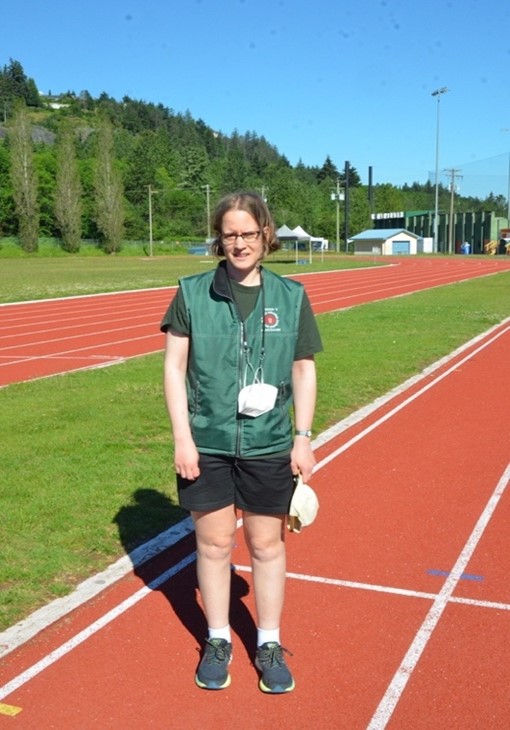
Miranda reporting at the Special Olympics
Miranda’s Story
Early Life and Diagnosis
My name is Miranda and I have lived with epilepsy since birth. I was first diagnosed with epilepsy a week after I was born. This happened when a nurse came to see me and noticed my face was turning blue and I was gasping for air. The nurse told my parents to call the ambulance and my mother went with me to the emergency neonatal Intensive Care Unit at the hospital. After various tests were done, I was diagnosed with epilepsy. I spent the next 4 months of my life in the hospital and doctors tried several anticonvulsant medications that didn’t work. When I was finally home from hospital, I had two medications that somewhat worked. As a result of my hospital stay, my development at that stage of my life was affected. It took me longer than other children my age to learn things such as walking and talking.
Early Years
For most of my childhood, following the epilepsy diagnosis, I had frequent visits with my pediatrician and other specialists. Often, I was in and out of hospital for check-ups regarding the effectiveness of my medications. I didn’t have a typical childhood because my mother passed away when I was four years old. My brother and I were raised by my father helped by various nannies. Even though my father, my brother and I had fun times, my daily life felt like I had to live in survival mode. There were weekly visits by the physiotherapist, speech pathologist, and occupational therapist.
Due to my medical issues, my life had to be structured. For example, I had nannies, special education assistants, medical visits to manage my medications, and occasional breakthrough seizures. My seizures were under control for most of my school years. However, in Grade 12, I had a couple of sudden breakthrough seizures due to medication issues. I was given a new medication to control the seizures. I continued my education at a specialized learning centre where I got one-to-one teaching and graduated with my high school diploma.
Employment and Post-Secondary Education
In Vancouver, I had a part-time job doing administration and reception support for 7 years. I enjoyed the work, but unfortunately the company had to downsize, so the job abruptly ended. Then, I had various employment specialists from different agencies to help me find work, but I faced barriers due to prospective employers finding out that I have an intellectual disability and was a controlled epileptic. I felt frustrated that I got nowhere, even though I kept applying for jobs in person.
For post-secondary education, I attended clerical courses at two different colleges and had to drop out because I am a visual learner and couldn’t keep up with the lecture’s speed of speech. I am currently enrolled in an online self-paced bookkeeping course. Meanwhile, I submitted a resume to a local business for a part-time employment. I am also working with an employment agency to help me find a part-time job.
Recent Breakthrough Seizure
Last year, I had a seizure at home and was supported by my family, family doctor, and neurologist. As a result, one of my anticonvulsant medications was increased in dosage. I have three anticonvulsant medications now to control my epilepsy.
Adult Years
Now as an adult, I continue to experience life fully, even though I have epilepsy and hope to inspire others with my story.
What I’ve Learned
- Early diagnosis and intervention with lots of support from family, professionals and physicians are key to living a full and productive life with epilepsy.
- My family found that having a journal was useful for communication with teachers during elementary school years along with annual parent and teacher meetings.
- Be strong with advocating for yourself, for example, find an advocacy group in your community, tell your story, and write letters, especially to editors of newspapers and politicians in charge of the welfare of people with epilepsy.
- Participate in community organizations and activities that you are interested in. For example, I am an Athlete Reporter at Special Olympics for my region.
- Use your voice, don’t give up on yourself, and say “Yes” to opportunities that come your way.





